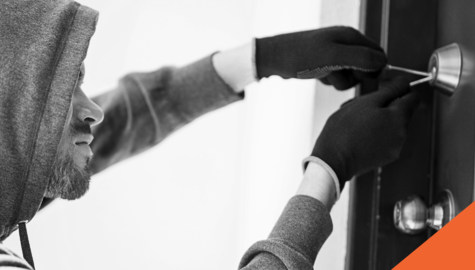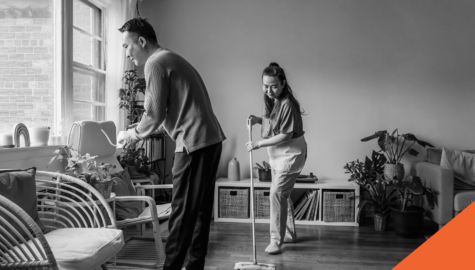Electrical Safety Tips for Extension Cords
Tuesday, 8 December 2020
Whether it’s holiday decorating or hooking up new appliances and electronics, odds are you’ll be resorting to an extension cord or power bar to maximize the outlets you have in your home. While extension cords are a convenient, temporary solution to deliver electricity to your devices, you should learn how to use them safely to avoid injury, electrocution, or even an electrical fire in your home. In this blog, we will explain some electrical safety tips for extension cords to avoid a home insurance claim.
Purchasing Extension Cords
The first electrical safety tip for extension cords is, of course, selecting a safe one that is rated for the appliance or product you intend to use. Here are some things to look for when selecting the best and safe extension cord.
- Only purchase extension cords and power bars that are approved by an independent testing laboratory such as Underwriters Laboratories (UL), Intertek (ETL), or the Canadian Standards Association (CSA).
- If you are using the extension cord outdoors, double-check that the label says it’s approved for outdoor use, especially if it will be exposed to rain and snow.
- Always read the instructions carefully before using the extension cord.
- Learn about the sizing or “gauge” of the extension cord. The lower the gauge number, the larger the wire. Larger wires/lower gauge numbers can handle more electrical current.
- Check that the extension cord is rated for the wattage of the devices you’re going to use. Also, remember that longer cords can’t handle as much current as shorter ones of the same gauge.
- For larger appliances, you should use thick, round, low-gauge extension cords, whereas smaller appliances and electronics can use thin or flat cords.
Electrical Safety Tips While Using Extension Cords
Once you know you have purchased the right gauge and size of extension cord for the products you will be using, following these electrical safety tips while using extension cords will be critical to your safety.
- Never remove the grounding pin (the third, large, round pin) to fit into a 2-prong outlet.
- Avoid using one extension cord for powering multiple appliances.
- Do NOT chain multiple extension cords or power bars together.
- Never cover extension cords with carpet or furniture or run them through walls, doorways, ceilings, or floors. If the heat cannot escape from the cord, it can cause a fire.
- Never use extension cords with frayed or exposed wires or cords that feel hot to the touch during use – these can give you an electric shock or burn.
- Do NOT run extension cords through water or snow on the ground unless they are rated for outdoor use.
- Keep cables uncoiled and unbent while they are in use.
- Verify the extension cords you use outside are rated for outdoors.
Electrical Safety Tips for Children
Children go through stages of immense curiosity, which can potentially lead to an injury or electrocution if you do not protect them from dangers. Here are some electrical safety tips for your home to protect your children from injury.
- Unused wall outlets should be covered with plastic inserts, or get creative with your furniture arrangement. This will prevent your child from inserting foreign objects into the outlet, potentially causing electrocution.
- Hide extension cords behind furniture or use a hide-a-cord device. Alternatively, use electrical tape on unused plug holes on extension cords. Make sure that heat can still escape from the cable to avoid a fire hazard, as mentioned above.
- For devices such as game consoles, cable boxes, or DVD players, keep them behind a locked barrier or out of your child’s reach.
- Keep bathroom and kitchen appliances (hair dryers, straighteners, toasters, mixers, etc.) out of the reach of children.
Other Electrical Safety Tips
Keep extension cords visible and avoid placing them in high-traffic areas as they can easily become a tripping hazard, causing injury to your family or guests.
An extension cord is intended to be a temporary solution, so if you find yourself using them year-round for a consistent purpose, consider speaking to an electrician about updating your home electrical to add more outlets. If you renovate your electrical or do other home updates, be sure to speak with your insurance broker so that you have the proper coverage. You may also be eligible for a lower insurance rate when you update your home.
Make sure you have a fire extinguisher on each floor of your home in case of a fire caused by electrical malfunctions. There are different types of fire extinguishers for different types of fires, so take a moment to learn about the types of fire extinguishers and how to use them.
Here at BIG, we are firm believers in education and prevention. Fire is a leading cause of insurance claims in the home, but it’s often preventable. By following these electrical safety tips for extension cords, these precautions can save you and your loved ones from fire, injury, or electrocution. Part of being prepared and preventing loss will also include a home insurance policy to give you peace of mind and financial help if you must make a claim. Speak with one of our brokers today about getting a no-obligation quote. If you ever need to make a claim on your BIG insurance policy, our claims team is available 24/7 to walk you through the process.



